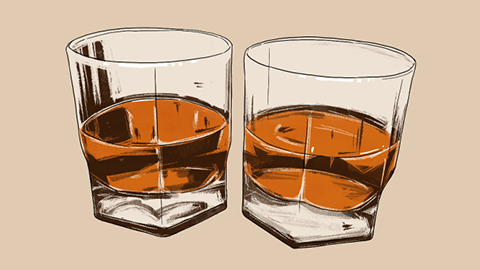Can people with high blood lipids drink alcohol?
Generally, people with high blood lipid levels are not advised to drink alcohol, as even small amounts of alcohol consumption may have adverse effects on lipid control and cardiovascular health. A detailed analysis is as follows:

During its metabolism in the body, alcohol is converted into raw materials for triglyceride synthesis. Long-term or excessive alcohol consumption significantly increases triglyceride levels in the blood. Elevated triglycerides are a major risk factor for diseases such as atherosclerosis and pancreatitis. Additionally, alcohol may interfere with the liver's ability to metabolize cholesterol after drinking, leading to increased low-density lipoprotein cholesterol (LDL-C) or dysfunction of high-density lipoprotein cholesterol (HDL-C), further worsening lipid disorders. Alcohol consumption can further exacerbate lipid abnormalities and increase the risk of cardiovascular events.
To avoid adverse effects on health, individuals with high blood lipids should avoid alcohol consumption as much as possible. They should also maintain a healthy diet in daily life, eating more fresh vegetables and fruits, and avoiding spicy and greasy foods such as chili peppers and fatty meats, to prevent negative impacts on their condition.








